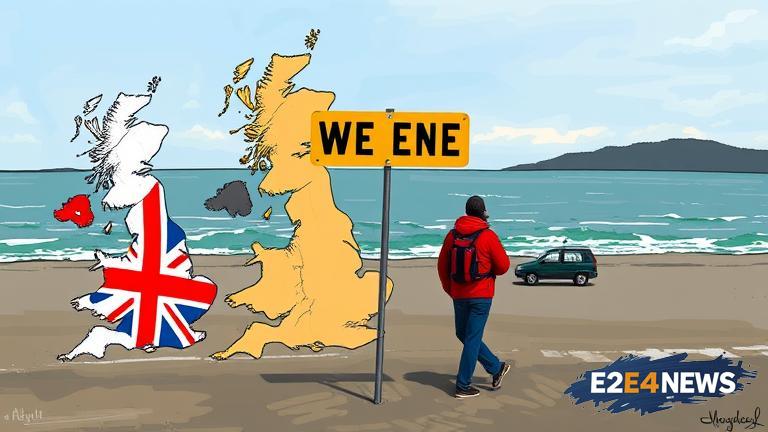The United Kingdom and France have reached a significant milestone in their efforts to address the long-standing issue of migrant crossings across the English Channel. The two nations have signed a comprehensive agreement, outlining a series of measures designed to curb the number of asylum seekers attempting to reach British shores. According to the deal, France will increase its border security presence, with a particular focus on the northern coast, where many migrants have been attempting to cross into the UK. In return, the UK has agreed to provide significant financial support to France, aimed at enhancing its border control capabilities. The agreement also includes provisions for increased cooperation between the two countries, including the sharing of intelligence and best practices in migrant processing. The UK government has hailed the deal as a major breakthrough, citing the need to protect the integrity of its borders and prevent the loss of life at sea. However, critics have raised concerns about the potential human rights implications of the agreement, arguing that it may lead to the mistreatment of migrants and asylum seekers. Despite these concerns, the deal is seen as a crucial step forward in addressing the complex issue of migration, which has been a major point of contention between the UK and France in recent years. The agreement is also expected to have significant implications for the European Union, which has been grappling with its own migrant crisis. As the UK and France move forward with the implementation of the deal, it remains to be seen how effective it will be in reducing migrant crossings and addressing the underlying causes of migration. The UK government has pledged to work closely with France to ensure the agreement is a success, and to explore new ways of addressing the root causes of migration, including poverty, conflict, and persecution. The deal has also sparked debate about the role of the UK in the global migration crisis, with some arguing that the country has a moral obligation to provide a safe haven for those fleeing war and persecution. Others have argued that the UK must prioritize the needs of its own citizens, and take steps to protect its borders from those seeking to exploit its asylum system. As the situation continues to evolve, it is clear that the UK-France migrant deal will be subject to intense scrutiny, both domestically and internationally. The agreement has the potential to be a game-changer in the global migration debate, and its success or failure will have far-reaching implications for the UK, France, and the wider European community. The UK government has stated that it will continue to work with international partners to address the global migration crisis, and to find solutions that balance the need to protect borders with the need to protect human rights. The deal has also highlighted the importance of cooperation and diplomacy in addressing complex global issues, and the need for nations to work together to find common solutions. In the coming months and years, it will be essential to monitor the implementation of the agreement, and to assess its impact on migrant crossings and the wider migration debate. The UK and France have demonstrated that, through cooperation and determination, it is possible to find solutions to even the most intractable problems, and their example will be closely watched by other nations grappling with similar challenges. The agreement is a significant step forward in the UK-France relationship, and demonstrates the strength and depth of the partnership between the two nations. As the UK and France move forward with the implementation of the deal, they will be closely watched by the international community, which will be eager to see whether the agreement can deliver on its promises and make a meaningful impact on the global migration crisis.
